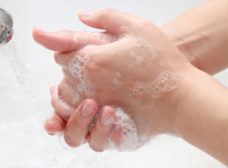Home » Keywords: » handwashing
Items Tagged with 'handwashing'
ARTICLES
Canadian Centre for Occupation Health and Safety:
Hand washing reduces risk of common infections
October 14, 2014
Become a Leader in Safety Culture
Build your knowledge with ISHN, covering key safety, health and industrial hygiene news, products, and trends.
JOIN TODAYCopyright ©2025. All Rights Reserved BNP Media.
Design, CMS, Hosting & Web Development :: ePublishing

-Bradley.jpg?height=168&t=1697138155&width=275)




